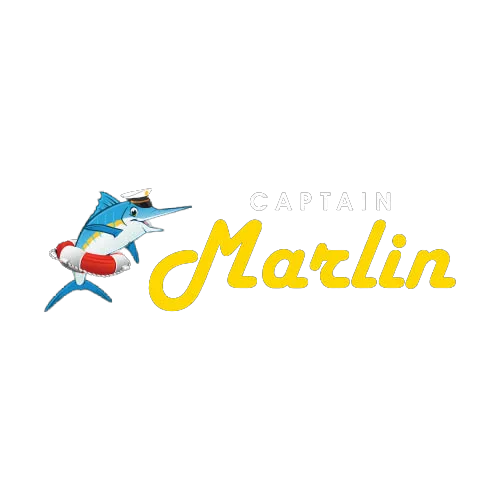Casino Owners: Top of The Richest
The world of casino ownership is a realm filled with intrigue, opulence, and the potential for immense wealth. It’s a sector where entrepreneurship meets entertainment, creating a unique blend of business acumen and the glittering allure of the gambling industry. At the heart of this world are the casino owners, a select group of individuals who have managed to turn their investments into veritable empires, amassing fortunes that are the subject of both admiration and fascination.
This elite circle of the richest casino owners represents more than just financial success; they embody the captivating blend of risk, reward, and the relentless pursuit of prosperity that is synonymous with the casino industry. Their stories are not just about wealth accumulation; they are narratives of ambition, strategic business decisions, and sometimes, sheer luck. As we delve into the lives of these affluent individuals, we uncover not only the secrets to their wealth but also the magnetic appeal that the world of casinos holds for both players and proprietors alike.
Check Out Latest Casino Bonuses
*as advertised
Lui Che Woo: From Humble Beginnings to Billionaire Status
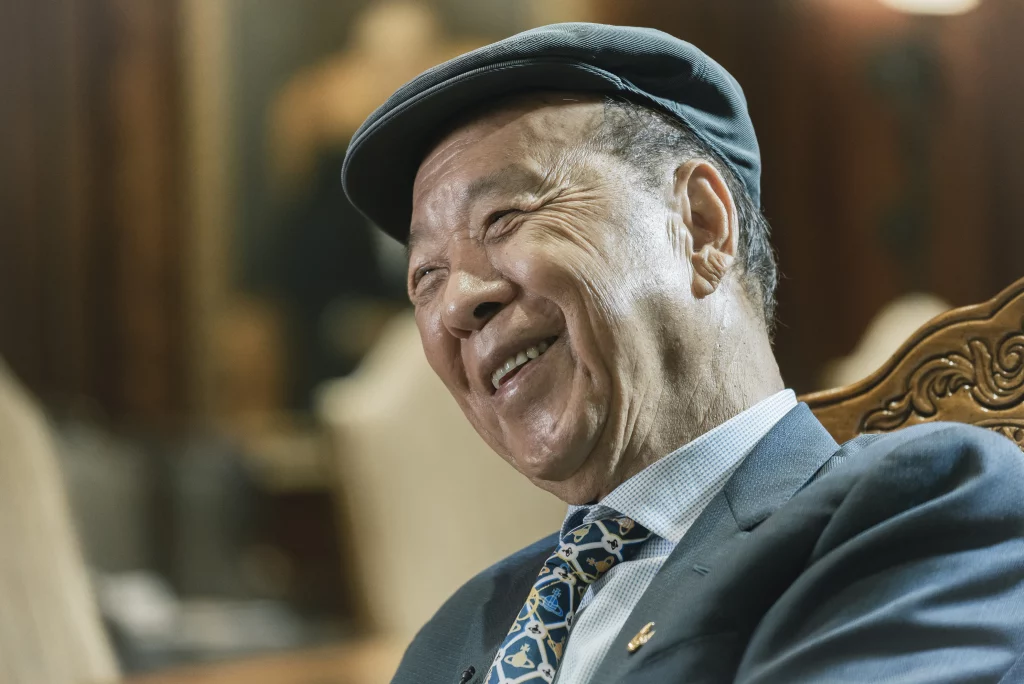
Lui Che Woo’s journey from modest beginnings to becoming one of Asia’s wealthiest individuals is a tale of resilience and entrepreneurial spirit. Born on August 9, 1929, in Jiangmen, China, Woo experienced the hardships of World War II during his childhood. His early years were marked by significant challenges, but these did not deter his ambition. The aftermath of the war led Woo’s family to move to Hong Kong, where he would eventually lay the foundations of his future empire.
In 1957, Woo ventured into the business world by founding K. Wah Construction Materials, focusing on producing cement and other building materials. This initial step into the construction sector marked the beginning of what would become a diverse and successful conglomerate. Woo’s business acumen and strategic approach allowed his company to expand rapidly, dominating Hong Kong’s construction sector in the 1960s and 1970s. By incorporating the latest technologies and innovations, K. Wah Group set pace with the global market, further solidifying Woo’s reputation as a visionary entrepreneur.
Major Breakthrough in the Casino Industry
The late 1990s marked a pivotal turn in Woo’s career path. Identifying an opportunity in the gaming industry in Macau, he founded Galaxy Entertainment Group in 1998. This move signified a significant shift from construction and real estate to the glamorous and lucrative world of gambling. Woo’s first major venture in this new arena was the opening of the Galaxy StarWorld Casino in 2006, a venture that heralded the beginning of Galaxy’s rise as a major player in the Macau gaming market. Under Woo’s leadership, Galaxy Entertainment Group expanded to include a portfolio of six resorts and casinos, becoming a cornerstone in the gambling and gaming industry in Macau and Hong Kong. By 2019, Galaxy reported a staggering revenue of HKD 52.8 billion (USD 6.8 billion), a testament to Woo’s successful transition into the casino industry.
Woo’s entrepreneurial journey is a compelling narrative of transformation and success. His initial ventures in construction and real estate laid the groundwork for his later achievements in the casino industry. Today, he stands as a towering figure in the world of gambling and gaming, having built an empire that spans across various sectors, including hotels, casinos, and entertainment. His story is one of perseverance, vision, and the ability to seize opportunities, making him one of the most influential figures in the global casino industry.
Tilman Fertitta: The Diversified Billionaire

Born in Galveston, Texas, Tilman Joseph Fertitta grew up in a world flavored by the family restaurant business. His father, Vic, owned a seafood restaurant on Galveston Island, where young Fertitta got his first taste of the hospitality industry by peeling shrimp in his father’s restaurant. His early education in business administration and hospitality management, though not culminating in a degree, laid the groundwork for his future entrepreneurial ventures, including selling and promoting Shaklee vitamins.
In the 1980s, Fertitta’s business acumen led him to found a construction and development business, developing his first major project, the Key Largo Hotel in Galveston. This period marked the beginning of his journey into the world of major business ventures.
The real turning point came when Fertitta became a partner in the first Landry’s Restaurant, Landry’s Seafood, in 1980, in Katy, Texas. Within a year, he helped open another restaurant, Willie G’s Seafood & Steaks, in Uptown Houston. By 1986, Fertitta had gained controlling interests in both locations, and in 1988, he became the sole owner of Landry’s Restaurants. His strategic vision led to the public listing of Landry’s, Inc. in 1993, which quickly grew, adding various concepts and expanding its footprint in the hospitality industry.
Casino Development and Other Ventures
Acquisition of Golden Nugget Casinos and Diversification into Digital Platforms
Tilman Fertitta’s foray into the casino industry began in 2005 with the acquisition of Golden Nugget Casinos, which included locations in Las Vegas and Laughlin, Nevada. This move signaled a significant expansion of Landry’s into the casino business, diversifying Fertitta’s interests and bolstering his status as a diversified billionaire. Under his leadership, Landry’s continued to grow in the casino sector, opening additional locations in Atlantic City, New Jersey; Biloxi, Mississippi; and Lake Charles, Louisiana. Notably, the Golden Nugget Atlantic City, previously known as the Trump Marina, was purchased from Trump Entertainment Resorts in 2011.
Fertitta’s journey from a family restaurant business to owning a major conglomerate, including a significant presence in the casino industry, exemplifies a diversified and strategic approach to business. His ventures reflect a keen ability to identify and capitalize on opportunities across various sectors, making him a prominent figure in the world of billionaires.
Johann Graf: The Gambling Industry Visionary
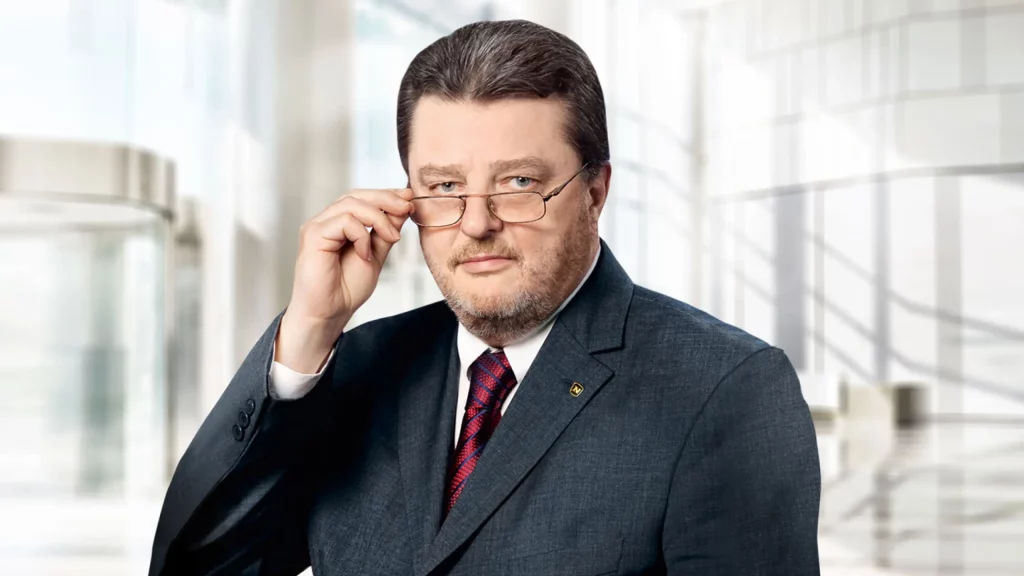
Johann Graf’s story is a classic tale of a self-made billionaire who transcended his initial career path to become a gambling industry titan. Born in 1946 in Vienna, Austria, Graf’s early life was far removed from the glitz of the gaming world. He began his professional journey as a butcher apprentice, working in his family’s business—an inn with a few guest rooms and an attached butcher’s shop in Perchtoldsdorf near Vienna. At 23, he became Austria’s youngest master butcher in 1970. However, his interests lay elsewhere, as he was drawn to the technological allure of slot machines, particularly pinball machines, which were popular in the early 1970s.
In 1974, embracing his entrepreneurial spirit, Graf founded Brodnik & Graf GmbH with his friend Gerhard Brodnik, embarking on a venture to import pinball machines for restaurants. This venture proved to be a turning point, enabling Graf to transition from the family butcher business to the more lucrative business of trading in gaming machines.
Building a Global Casino Empire
The Rise of Novomatic and Its Impact on the Industry
Graf’s most significant entrepreneurial leap occurred in 1980 when he founded Novomatic Automatenhandels GmbH. This marked the start of his own gaming technology company, initially very modest, with Graf utilizing his savings as the starting capital. The company began by producing billiard tables, gradually expanding its operations to include slot machines. These early endeavors laid the foundation for what would become a global company empire.
Novomatic’s rise in the gambling industry is a testament to Graf’s philosophy of “quality over quantity.” The company expanded internationally from the early 1980s, with Graf establishing a sales company in Switzerland, which soon became one of their home markets, along with England and Germany. Graf’s strategic vision led Novomatic to capitalize on the opportunities in the Central and Eastern European reform countries, significantly advancing their product development and market penetration. This expansion included the establishment of a research and development center in Kraków for software development.
Today, Novomatic AG, solely controlled by Graf, operates approximately 1,200 electronic casinos, casinos, and sports betting shops, with over 200,000 slot machines in more than 32 countries. A notable subsidiary, Admiral Sportwetten, founded in 1991, boasts 200 branches in Austria. Graf’s strategic expansion even led him to open a casino in Santiago de Chile, further solidifying his status as a gambling industry visionary.
Johann Graf’s journey from an aspiring butcher to a global gambling mogul illustrates a remarkable transformation driven by innovation, strategic expansion, and a steadfast commitment to quality. His leadership in Novomatic has not only shaped his personal fortune but has also significantly impacted the global gambling industry, making him a true industry visionary.
John Paulson: The Investment Savvy Billionaire
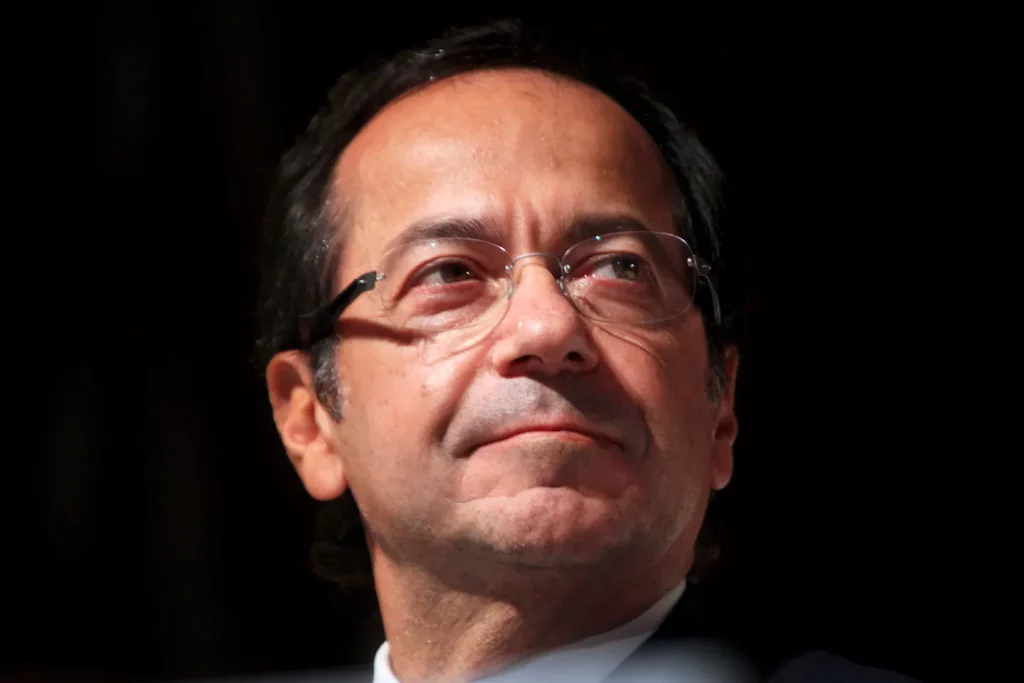
John Alfred Paulson, an American billionaire hedge fund manager, founded Paulson & Co., a New York-based investment management firm, in 1994. Renowned as “one of the most prominent names in high finance,” Paulson’s rise to fame and fortune came in 2007, when he earned almost $4 billion by using credit default swaps to bet against the U.S. subprime mortgage lending market. In 2010, his earnings skyrocketed to $4.9 billion, solidifying his position as a financial legend with an estimated net worth of $3 billion as of January 2023.
Paulson began his career at Boston Consulting Group in 1980, providing advice to companies. With an ambition to work in investment on Wall Street, he transitioned to Odyssey Partners, Bear Stearns, and then to Gruss Partners LP. In 1994, he started his own hedge fund, Paulson & Co., with $2 million and one employee. The firm specialized in “event-driven” investments, including mergers, acquisitions, spin-offs, and proxy contests. By 2003, his fund had grown to $300 million in assets. His business approach, focusing on strategic event-driven investments, has led him to make hundreds of such investments throughout his career.
Impact on the Gambling Industry
In the realm of casino and iGaming operations, Paulson’s strategies have been equally impactful. Paulson & Co.’s 13F filing revealed that while gold and financial-related assets continued to dominate the fund, Paulson had diversified his portfolio to include new positions in the casino, generic drugs, discount stores, and oil & gas related industries. Among these, his significant investment in the casino industry came with his purchase of 40 million shares of MGM Mirage, valued at $480 million. This investment indicated Paulson’s confidence and strategic approach in the gambling sector, despite the company’s financial challenges at the time. His foray into the casino industry showcases his adaptability and willingness to diversify into new and potentially lucrative markets.
Steve Wynn: The Architect of Modern Las Vegas

Steve Wynn, born Stephen Alan Weinberg in New Haven, Connecticut, was introduced to the world of gaming through his father’s chain of bingo parlors in the eastern United States. After his father’s passing in 1963, Wynn took over the family business, moving away from Yale Law School to manage his family’s bingo parlor in Maryland. His early foray into the family business laid the groundwork for his future endeavors in the casino industry.
Landmarks in Casino Development
Steve Wynn’s impact on Las Vegas’s landscape began with his involvement in The Mirage, which opened in 1989. This was Wynn’s first major casino on the Las Vegas Strip, notable for being the first to use security cameras full-time on all table games. The Mirage, a $630 million project, set new standards in casino design and construction and became home to renowned shows like Siegfried & Roy and Cirque du Soleil.
Following The Mirage, Wynn developed the Treasure Island Hotel and Casino in 1993, which became the first permanent Cirque du Soleil show venue in Las Vegas. His vision continued to shape Las Vegas with the opening of the Bellagio in 1998. The Bellagio, a $1.6 billion resort, was the most expensive hotel in the world at its time of construction and is famed for its iconic fountains. This property marked a new era of luxury in Las Vegas and inspired other developments like The Venetian and Mandalay Bay.
In 2000, Wynn sold Mirage Resorts to MGM Grand Inc. for $6.6 billion and subsequently purchased the Desert Inn for $270 million. In 2005, he opened Wynn Las Vegas on the former Desert Inn site, a $2.7 billion project that was the largest privately funded construction project at the time. Wynn Las Vegas further cemented his status as a key figure in the evolution of modern Las Vegas.
Additionally, Wynn expanded his casino empire to Macau, successfully bidding for one of the gaming concessions in the region. Wynn Macau, opened in 2006, became the fifth Asian hotel to receive the Mobil Five-Star award, signifying Wynn’s influential presence in the global casino and hospitality industry.
Phil Ruffin: A Journey Through Various Industries
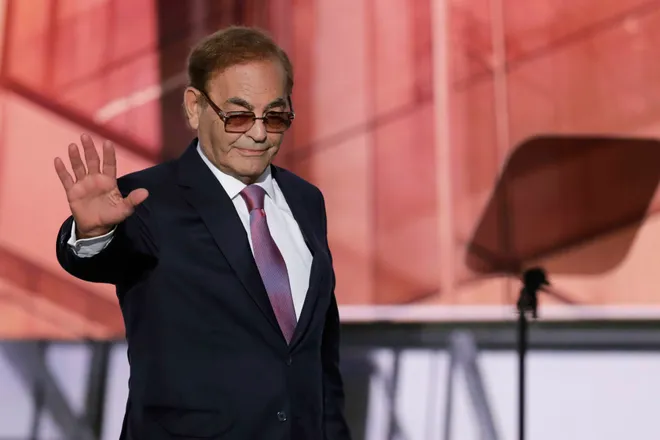
Phil Ruffin’s journey to the casino industry was marked by diverse business ventures. He began in 1972 by pioneering self-serve gasoline in Kansas, creating a chain of 60 convenience stores across the Midwest. By 1987, Ruffin had expanded into the hotel industry, building his first hotel, a Marriott in Wichita. His business portfolio also included oil distribution and the manufacturing of hand trucks. In 1994, Ruffin leased his convenience stores to Total and used the proceeds to acquire more hotels. A pivotal moment in his career came in 1995 when he acquired the Crystal Palace casino resort in Nassau, Bahamas, and later the New Frontier Hotel and Casino in Las Vegas.
Key Casino Acquisitions and Growth
Ruffin’s most notable casino acquisition was the New Frontier Hotel and Casino, a storied property on the Las Vegas Strip. Purchased in 1998, Ruffin resolved a long-running strike soon after taking ownership and announced plans for a new resort, The Montreaux, although this development never materialized. In 2007, he sold the New Frontier for $1.2 billion, the largest per-acre price in the Strip’s history at that time.
In March 2009, Ruffin bought the Treasure Island Hotel and Casino from MGM Mirage for $600 million in cash and $175 million in secured notes. Despite a down market, Ruffin was confident in the investment, highlighting the irreplaceable value of Strip assets. By 2018, he had turned down substantial offers for the property, emphasizing the importance of assets over money.
In December 2019, Ruffin expanded his Las Vegas portfolio by acquiring Circus Circus Las Vegas from MGM Resorts International for $825 million. This acquisition included the adjacent Slots-A-Fun Casino, the Adventuredome amusement park, and additional open space. Ruffin plans to enhance Circus Circus by adding a swimming pool complex complete with a wave machine, sand beaches, and a lazy river ride.
The Fertitta Brothers: A Legacy in the Making
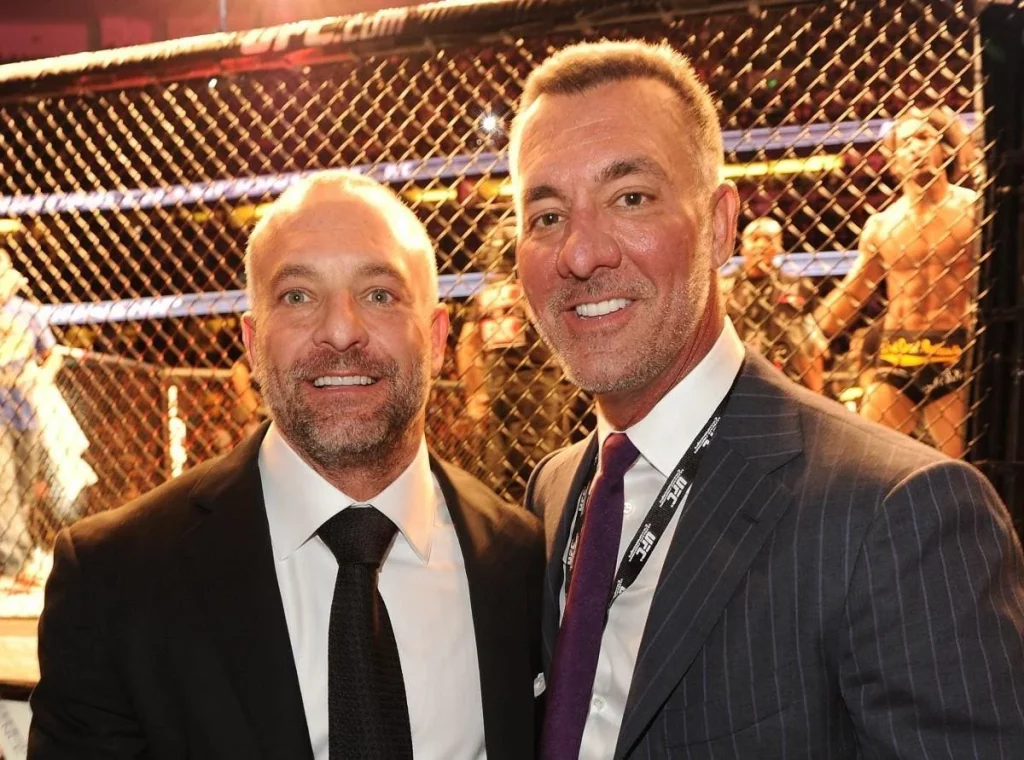
The Fertitta brothers, Lorenzo and Frank III, inherited a strong entrepreneurial spirit from their father, Frank Fertitta Jr., who was instrumental in the Las Vegas casino scene. Fertitta Jr. moved from Texas to Las Vegas in 1960, where he initially worked as a dealer at Stardust Casino before advancing to management positions at several notable casinos like the Tropicana and Circus Circus. In 1976, he built The Casino, later renamed Bingo Palace, which eventually became Palace Station. This was the beginning of what would grow into a significant family business in the casino industry.
Frank Fertitta Jr. worked at Station Casinos, a prominent developer and casino operator, alongside his sons until his retirement in 1993. His involvement in the business extended beyond his professional career, as he remained active in other family ventures and community service until his passing in 2009. Las Vegas Mayor Oscar Goodman described him as “one of the most successful business persons in the history of Las Vegas”.
The Story of Red Rock Resorts Inc. and Its Evolution
Lorenzo and Frank III played pivotal roles in the family business from an early age, working for their father at Station Casinos during their high school and college years. After their father’s retirement in 1993, they led the company to its first initial public offering (IPO), raising $294 million. They became the principal shareholders and co-founders of Station Casinos Inc. The company underwent several significant changes, including a management-led leveraged buyout in 2007 that took it private, followed by a bankruptcy filing in 2009. However, they managed to retain full control of the company, emerging from bankruptcy in 2011 with a new ownership structure.
In 2015, Red Rock Resorts Inc. was established to take Station Casinos public again through an IPO. This holding company, which owns a portion of the Station Casinos entity, successfully raised $531.4 million in 2016, pricing 27.25 million shares under the ticker symbol “RRR”. The Fertitta family continued to maintain a significant stake in Red Rock Resorts Inc., with Lorenzo Fertitta being named Vice Chairman in 2017. This evolution marks the continued growth and influence of the Fertitta family in the casino industry.
Conclusion
The narratives of the world’s richest casino owners reveal a fascinating tapestry of entrepreneurial brilliance, strategic foresight, and a knack for seizing opportunities. Lui Che Woo transformed his beginnings in construction into a casino empire in Macau. Tilman Fertitta, starting with a family restaurant, expanded into a diverse portfolio including major casino investments. Johann Graf, from a butcher apprentice to a global gambling mogul, founded Novomatic, significantly impacting the industry. John Paulson, a hedge fund manager, strategically invested in the casino sector, adapting his financial expertise to a new arena. Steve Wynn, an iconic figure, reshaped Las Vegas with landmark properties like The Mirage and Bellagio. Phil Ruffin’s journey from convenience stores to major Las Vegas properties like Treasure Island and Circus Circus shows his diverse entrepreneurial skills. Each of these figures exemplifies a unique path to success in the dynamic and ever-evolving world of casino ownership, leaving indelible marks on the industry.
FAQ
-
Who are some of the richest casino owners in the world?
Some of the wealthiest casino owners include names like Sheldon Adelson, who was known for his ownership of Las Vegas Sands Corporation, and Lui Che Woo of Galaxy Entertainment Group. Other notable figures include Johann Graf, founder of Novomatic, and James Packer, involved in Crown Resorts.
-
What is the estimated net worth of the wealthiest casino owner?
The net worth of the wealthiest casino owners can fluctuate based on various factors. As of the last known figures, Sheldon Adelson's net worth was estimated to be around $35 billion, making him one of the richest in this sector.
-
Are these casino owners involved in other businesses besides casinos?
Yes, many of these casino moguls have diversified their interests. For example, they often invest in real estate, luxury hotels, entertainment ventures, and various other business sectors.
-
Have any of these owners made significant philanthropic contributions?
Many of the richest casino owners are known for their philanthropic efforts. Sheldon Adelson, for instance, contributed to various charitable causes, including medical research and higher education.
-
How do these individuals impact the global gaming industry?
As influential figures in the casino industry, they play significant roles in shaping market trends, regulatory landscapes, and technological advancements in the gaming sector. Their decisions often have far-reaching impacts on the global gaming industry.




 150% + 150 FS
150% + 150 FS 












